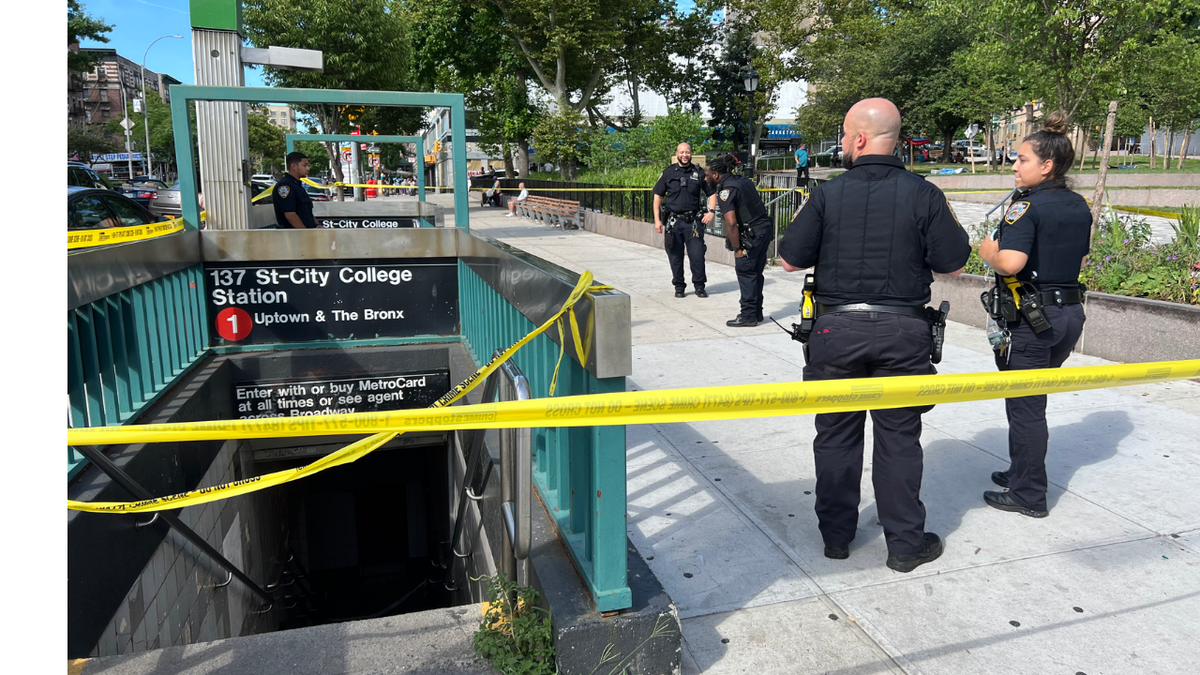Former NYPD inspector Paul Mauro gives dire warning on New York City crime: 'We are on an inevitable decline'
Former NYPD inspector Paul Mauro weighs in on the gravity of crime in New York City after a pickpocketer stole from a dead man.
Protecting the safety and freedoms of a citizenry is the first principle of any government, and from that principle derive all other benefits a society confers. Like the freedom to go to a bar and get hammered without getting shot on your way home.
Freedoms like that are under threat in New York, as worsening street conditions have become a significant drag on the city’s famed nightlife. It’s another downstream effect of rising crime and homelessness – and one which won’t help the city’s looming budget problems.
The scenario is not restricted to New York – nearly all the nation’s major municipalities are in the same boat. But if our leaders ever hope to return our cities to the beacons of freedom and commerce they once were, recognizing the effect street disorder is having on the critical hospitality sector can no longer be ignored.

Police respond to a reported stabbing inside the 137 Street/City College train station in Manhattan on July 9, 2022. (Peter Gerber)
In New York, the result has been that "the city that never sleeps" is getting plenty of rest.
"Yeah, I’m closing earlier than I ever did," says Nick Zippilli, owner of The Westside Steakhouse in Hell’s Kitchen. "The later it gets, the whackier it gets out there. It’s dangerous and it’s unpredictable. Homeless guys all over. Where’s all this money they’re spending on shelters going?"
Another neighborhood bar owner, Michael Younge of The Landmark Tavern (founded in 1868, it’s literally a landmark), backs him up. "Yeah, there’s been a change," he says. "We’re closing earlier, because we can’t get the staff for two shifts." Younge acknowledges the effect of deteriorating street conditions. "It’s not just the homeless. It’s homeless who are mentally disturbed. One of my servers used to go home by the Port Authority. She can’t go near the place now."
On the east side, Adam, manager of The Auction House, a neighborhood institution for 30 years, is seeing much the same. "We’re not running late anymore," he says. "We used to run until 2 a.m. Now we’re closing by midnight. People are not going out late. And nobody wants to sit outside."
Recent crime numbers support the notion that the city is becoming less hospitable. New York crime, at this writing, is up 33% overall. But significantly, there’s been a 36% jump in robberies and a 16% jump in felony assaults.
These are crucial metrics, because robberies and assaults are the crimes most likely to occur on the street, in areas where tourists and others are out and about. Add a relentless stream of emotionally disturbed homeless, and it’s no wonder the city’s going dark early.
Johnny Barounis is a well-known veteran of New York’s nightlife industry. One of his bars, The Back Room, is an historic "speakeasy" on the lower eastside – located just a block from the infamous McDonald’s "hatchet incident."
"There’s definitely a different vibe in town," Barounis says. "Yes, we’re closing earlier. The market dictates it." A critic of New York’s "bail reform" laws – like many other business owners around town – Barounis doesn’t blame the police. "There are no consequences for crime anymore. I’m seeing fewer outer-boroughs people. Just turn on the news. Would you take your girlfriend on the subway?"
Barounis hits a key point: the subway is crucial to the city’s hospitality industry. In addition to carrying customers around town, it’s also how most hospitality workers get to and from work. And if there is a common refrain among them, it’s that they won’t take the subway late night. Because while arrests may be up in the transit system – crime is also up 42%.
"I bought a cheap motorcycle and I commute, rain or shine," says Alejandro, a waiter in midtown. "But it costs me. The tolls, parking, wear and tear on the bike…. But leaving work at 2 in the morning, you don’t know if you’re even getting home anymore."
His colleague Nicholas agrees. "I live only four or five stops away from work, but I don’t care. I take a cab every night. I used to take the train, but I would get hassled all the time. Threatened. It’s not worth it." For most hospitality workers, however, a daily cab or uber ride is beyond their means.
It’s a perennial problem, growing worse. Restaurant workers are targeted because experienced criminals know they often carry cash. Many are also illegal migrants who may be fearful of going to the police. So these are robberies which may not even show up in the city’s crime statistics. In fact, in the same restaurant where Alejandro and Nicholas work, one of the dishwashers was robbed on the subway just the night before.
CLICK HERE TO GET THE OPINION NEWSLETTER
This fear of the subways puts pressure on owners to close earlier, makes full-staffing harder to achieve, and hurts their bottom line – impacting tax revenues New York can ill-afford to lose.
"The problem is two-fold," says Andrew Rigie, director of the NYC Hospitality Alliance. "It’s actual crime, but it’s also about the narrative, the perception of being unsafe in the city." And once again, Rigie points to street conditions. "There’s a lot of mentally ill, bothering people outdoors and just walking into places. We need better treatment, better street lighting. There’s vacant storefronts…. Because it’s also about what the city looks like."
The bottom line: as New York learned the hard way in the 1990s, without safety, they won’t come. No one will.
CLICK HERE TO GET THE FOX NEWS APP
Rigie notes that the city’s hospitality industry still employs 50,000 fewer workers than in 2019, despite the pandemic’s wane. And tourism is way down. "We’re still a vibrant, exciting city. And we’re working to bring back the 70 million foreign visitors that used to come. But it’s a challenge."
Johnny Barounis agrees with the "challenge" part. "Guys with hatchets at McDonald’s. On TV. Would you come to New York?"















































